80 years of British family holidays at Butlin's
Eight decades after Butlin’s opened its first holiday camp, Simon Calder looks back at the brand that defined the seaside for many, and gets the inside story on its future plans
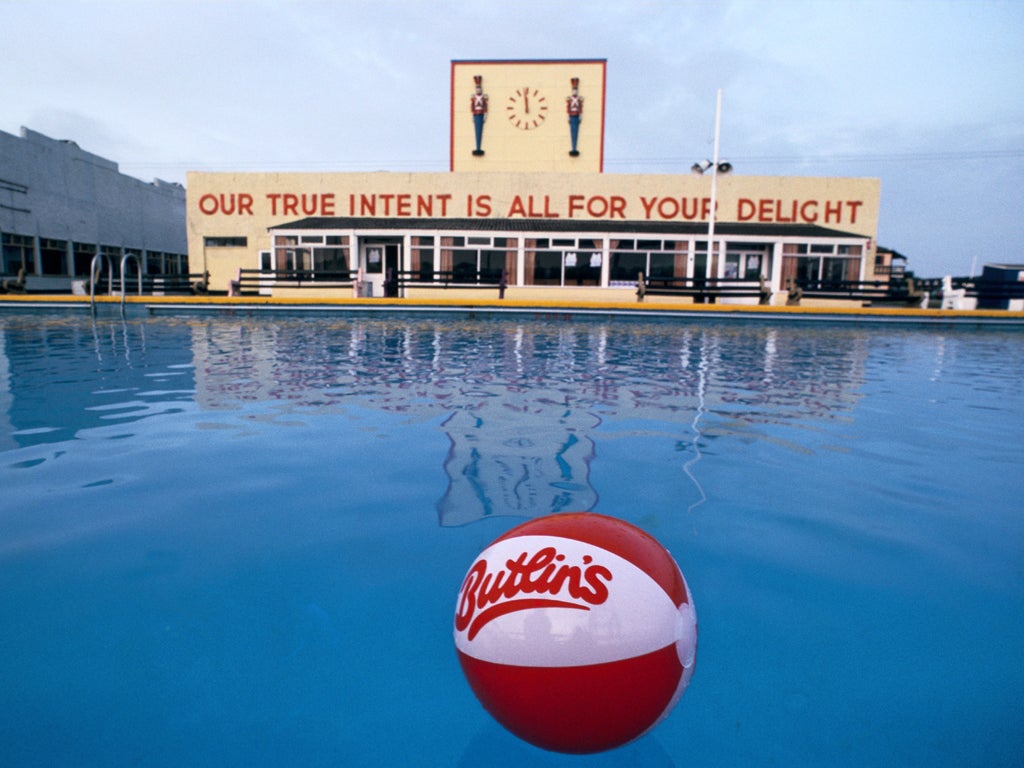
Your support helps us to tell the story
From reproductive rights to climate change to Big Tech, The Independent is on the ground when the story is developing. Whether it's investigating the financials of Elon Musk's pro-Trump PAC or producing our latest documentary, 'The A Word', which shines a light on the American women fighting for reproductive rights, we know how important it is to parse out the facts from the messaging.
At such a critical moment in US history, we need reporters on the ground. Your donation allows us to keep sending journalists to speak to both sides of the story.
The Independent is trusted by Americans across the entire political spectrum. And unlike many other quality news outlets, we choose not to lock Americans out of our reporting and analysis with paywalls. We believe quality journalism should be available to everyone, paid for by those who can afford it.
Your support makes all the difference.“Skegness, 7.23am, platform 4”: the journey opportunity offered on the departure board at Grantham station may not make your pulse race. The train from the town voted most boring in Britain threads an erratic course through Lincolnshire and, on a good day, arrives by 9am at a place sometimes derided as Skegvegas. But 80 summers ago, there were plenty of people for whom the Lincolnshire resort was the closest destination to paradise.
“Butlin’s Skegness Holiday Camp wish to announce that the camp is now fully booked to the middle of September,” read a newspaper advertisement from 1936. “During the last week over 1,400 bookings were refused as we had no further accommodation available.”
From opening day – 11 April 1936 – Butlin’s had done the the Thirties equivalent of going viral.
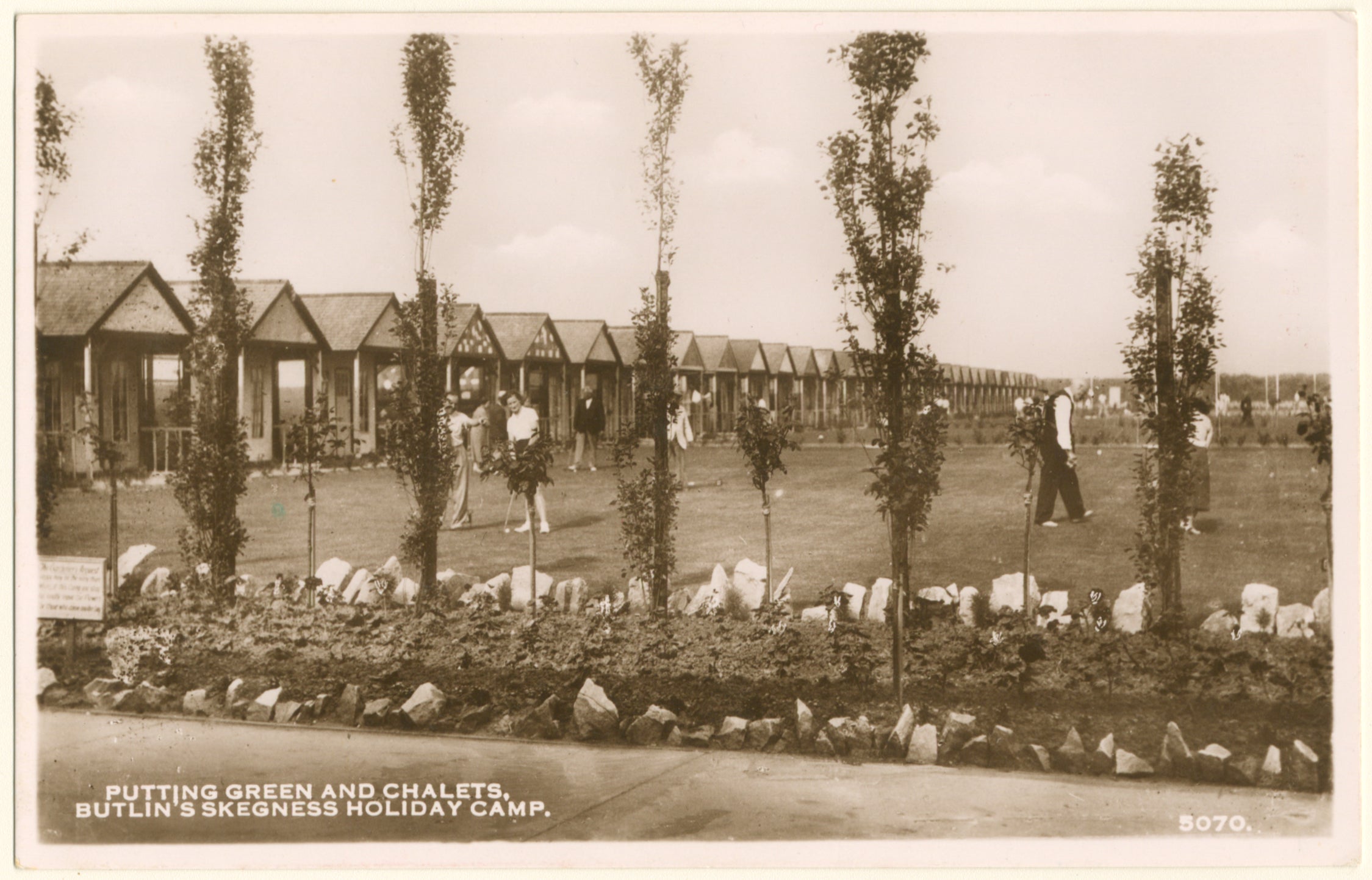
Eighty years on from Sir Billy Butlin’s visionary industrialisation of the family holiday, a complete sell-out is the sort of problem that the people who run the UK’s seaside holiday trade would love to have. Including Dermot King, managing director of Butlin’s in 2016.
“In many ways, Billy was lucky,” he told me when we met at the place where it all began. “He was a trailblazer, and we today face hard competition.”
William Edmund Butlin was a South African-born entrepreneur. He began by working for a travelling fun-fair, but soon acquired his own assets, and started building a brand. “It’s thrilling, it’s amusing, it’s exciting, it’s Butlins,” was the slogan emblazoned over his dodgems. Billy saw the potential for a new business model in which accommodation, meals and entertainment were included in the price of a holiday. The new Holidays With Pay Act meant working families were entitled to a week off each summer, and the Butlin’s proposition, harnessing the economies of scale involved in housing, feeding and amusing 1,000 people a week, was the answer for many of them. A good weekly wage for a manual worker in 1936 was £2. A week at Butlin’s cost 45 shillings (£2.25) per person. For a family of four, another couple of pounds for the train from Nottingham or Sheffield to Skegness made it a manageable £11 all in.
Why Skegness? Partly because at the time it had excellent rail links from the cities of Yorkshire and the East Midlands, and partly because it was “on the drier side of Britain”.
As the drizzle eased off, Dermot King took me to see the key to the Butlin’s business: a Grade II-listed Sleeping Chalet, now a museum piece at the Skegness holiday park. Each prefabricated wooden cabin cost £10 to install. The fixtures and fittings were spartan, including bunk beds, a cold-water tap and 40-watt lightbulb. Bathroom facilities were strictly communal. But for families from Britain’s industrial heartland, the lawns, flowers and fresh air sealed the deal on what was regarded as as luxury holiday.
Fun wasn’t abundant in the 1930s Britain, while abroad fascism was taking root in Europe and the Great Depression was devouring American optimism. So the mission statement, “Our true intent is all for your delight” was revolutionary.
Even during the Second World War, when the camps were taken over for the war effort, Billy’s customer-focused attitude prevailed. Part of Skegness became an internment camp for German citizens living in Britain. They were told: “In this internment camp you will not be bullied. I hope we shall be good friends. You will not suffer any unnecessary discomfort. Our code is framed for your happiness.”
I learned this at the Butlin’s archives, held by the History of Advertising Trust in Norfolk. This fascinating corporate history shows how the firm became a national treasure.
The business was naturally scalable. Skegness was followed within two years by a holiday camp at Clacton, putting it within two hours’ train journey from London.
Filey, Ayr and Pwllheli (“The Welsh Riviera”) each had their own catchment, and core concepts rippled through the network. The American Cocktail Bar (“As sophisticated as any in London, Paris or New York”); the Tyrolean Beer Garden (“Gay with colours, flowers and music”); and talent shows. Bonny Baby of the Week was a bit of fun, but the ultimate Glamorous Granny prize of £1,000 (about £20,000 today) was fiercely fought over – sometimes literally.
I calculate that Peak Butlin’s was in 1963. Eight holiday camps around the coast of Britain were augmented by one in Ireland and Butlin’s hotels in Blackpool, Brighton and Margate. There was even an ill-fated Butlin’s venture, involving a $8m investment, on the island of Grand Bahama (“It’s June year-round in the Bahamas”).
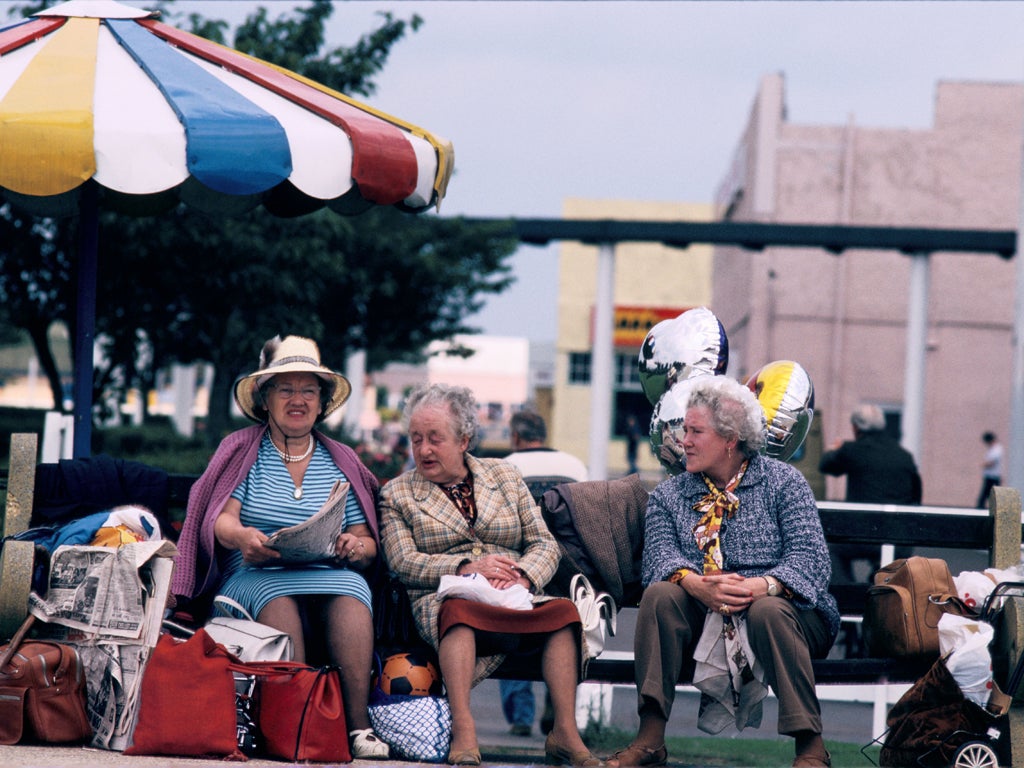
By 1970, it was clear that the world was passing Butlin’s by. Even as sterling slumped, improvements in aircraft technology made the Med cheaper and more accessible. The Jumbo jet age, which began in January of that year, extended horizons beyond Europe. And the breathless pace of social and cultural change in Britain in the Sixties had been overlooked at Butlin’s. While The Who and Jimi Hendrix were making musical history at the Isle of Wight Festival, across the water at Bognor Regis the punters were enduring a Singing Waiters competition sponsored by Watney’s.
“The fact of the matter is it didn’t keep up with the competition,” concedes Dermot King. “The competition was showing better choices, better places to go and more fun to have, and British seasides didn’t keep up with that. They were stuck in the 1950s.”
On the “if you can’t beat them, join them” principle, Butlin’s moved into Spain, but a one-hotel operation in Torremolinos could never compete with the big tour operators, who had learned plenty about industrialising holidays from Butlin’s.
Bobby Butlin had taken over from his father in 1968, but his 16-year tenure comprised a struggle to catch up with real life. In a bid to modernise the image, he presided over the killing-off of the morning “Wakey! Wakey!” call at a ceremony at Ayr in September 1979. But the following year the sitcom Hi-de-Hi! was born, within weeks of Sir Billy Butlin’s death. During the Eighties the holiday camp was ridiculed weekly on BBC TV.
Just as Skegness in March can comprise a good definition of the word “bleak,” so the Butlin’s story looks a convincing candidate for “terminal decline”. Besides Skegness, only Bognor and Minehead have survived. Yet Dermot King is optimistic – almost evangelical – about the firm’s future.
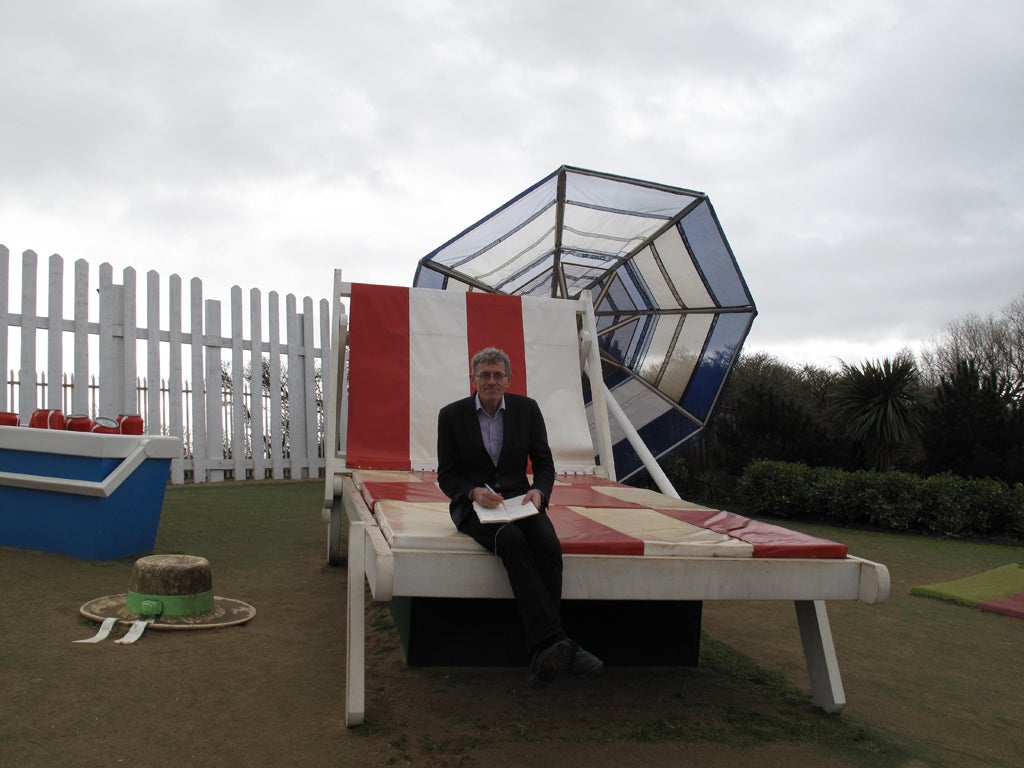
“Great entertainment, great activities, great swimming facilities, brilliant food and beverage offers, and large ranges of different accommodation choices,” is how the Butlin’s boss describes the deal for 21st-century holidaymakers.
Last May, a £16m investment in the Minehead holiday park involved tearing down old barracks-style chalets and replacing them with high-spec accommodation decorated with design elements from the Butlin’s back catalogue – such as the “B” logo that used to feature on candlewick bedspreads in Skegness, 1936.
Rather than the full week experience that Billy conceived, the firm is targeting families who want short breaks. The problem remains, though, that for people in Birmingham or Manchester, Skegness is probably less accessible than Barcelona. It is also on the edge of a county that has a less glamorous image than Catalonia.
Yet perhaps Lincolnshire could regain the nation’s affection. A few miles west of “Skeggy” in the village of Hundleby, a new boutique B&B called The Elm Tree has just opened – providing the other end of the spectrum from a Butlin’s chalet, with meticulous individuality the theme.
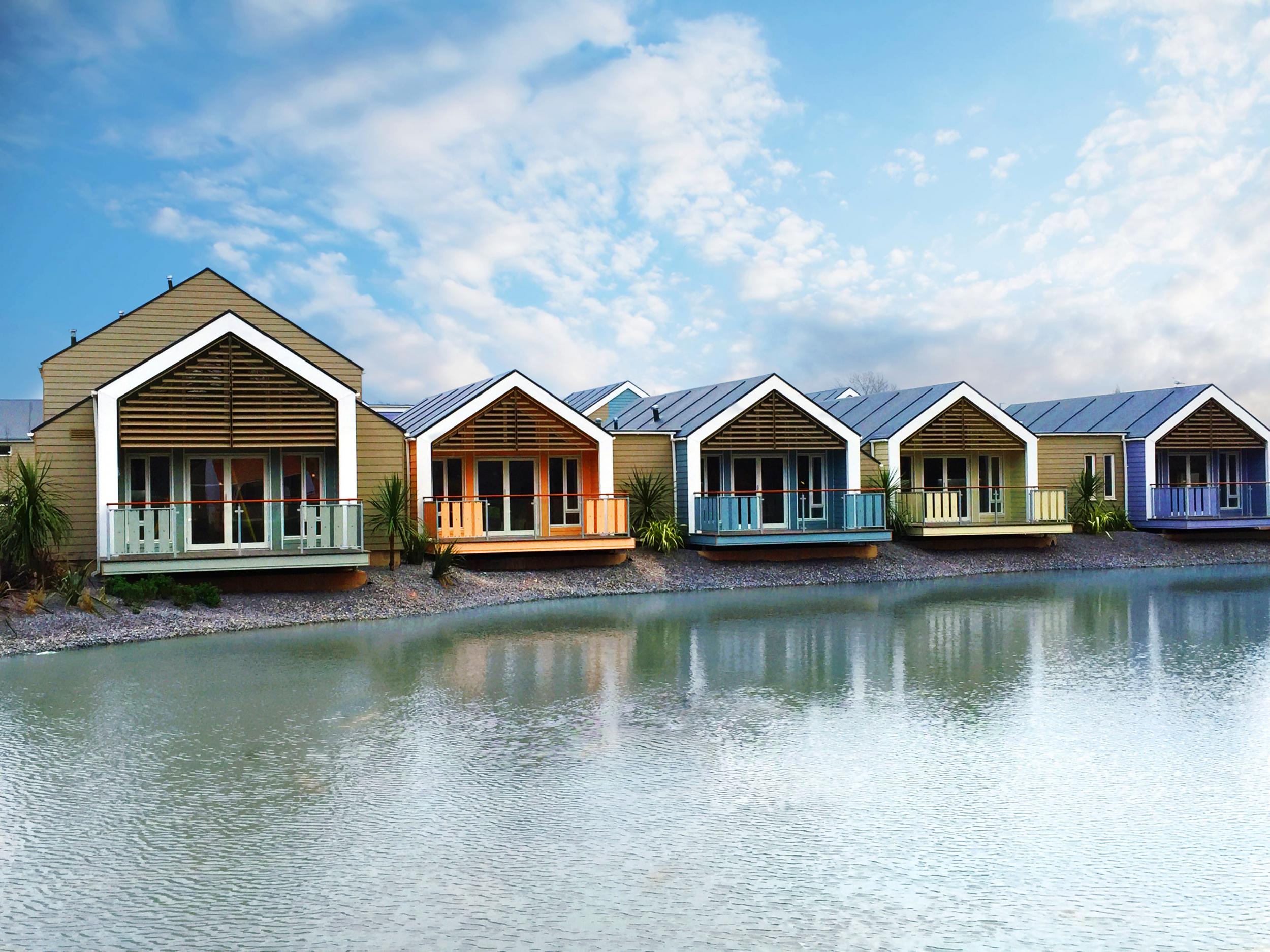
As the co-owner, Jonathan Wilkinson-White, shows me around the handsome villa, he says: “Lincolnshire is an undiscovered gem. It’s just a case of educating people. We believe in what a fantastic county we have. If you’ve got the belief, people will follow. I hope.”
Although he and Dermot King are not exactly squabbling over the same market, in a sense they need each other. And they share a vision of renaissance, and passion for the customer.
Back in bracing Skegness, I ask the Butlin’s boss if Sir Billy’s promise, “Your holiday is my holiday”, still holds?
“My only measurement of success is how often my families, my customers, come back. If you want choice, and you want it by the seaside, and you want all of your family to be able to enjoy it, we have the offer for you and that’s Butlin’s.”
Travel Essentials
Butlin’s (0330 100 6648; butlins.com). Term-time midweek stays from £46pp for four nights. Three-night summer holiday breaks from £145pp.
The Elm Tree, Hundleby (01790 753534; elmtree.co.uk). Doubles start at £90, B&B.
Join our commenting forum
Join thought-provoking conversations, follow other Independent readers and see their replies
Comments